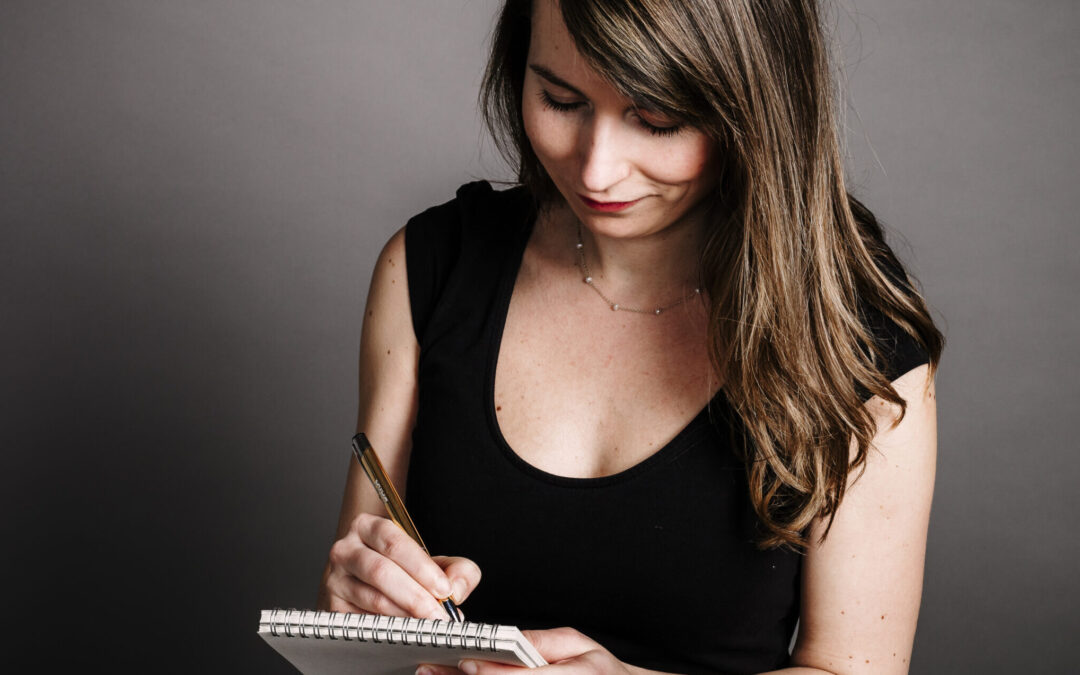Just like in any other creation involving more people, things can get complicated, muddled, and nasty, but things can also get clearer, brighter, and more satisfying than if you were doing them alone.
If you’ve ever tried to create anything artistic with another human, you already know that.
Maybe you have some bittersweet memories of being totally in sync one moment, and totally in discord the next.
But all in all, it was worth it, because you learned a lot about yourself, where your boundaries lie, where you trigger others, and where they trigger you. You had to weigh the importance of your art and the importance of relationships and then come up with something I don’t want to call a “compromise”, but rather an “accord” — just like in music one chord is composed of at least 3 different notes, your song is composed of at least 2 different personalities, skillsets, and views… And it can still sound beautiful in the end.
The art of being vulnerable
Co-writing is the art of being vulnerable and open to new ideas, and changes, going with the flow, but also regulating yourself.
You as songwriters are exploring new territories, trying to find a common ground—you are two worlds mixed, as you try to embody individual feelings and two sides of a story in one song that is shared.
There is a lot of explaining, trying out and discarding, thinking, thinking out loud, quiet humming, bold outcries, and possibly a lot of laughter… It demands of you the ability to laugh at yourself, but also to acknowledge when you’re onto something good.
The story and what’s behind
In my recent co-writing session with the Danish musician and multi-instrumentalist Morten Vestergaard, I was lucky to get in the flow almost instantly. One thing led to another (I went to close the window and he suddenly remembered his odd dream), and we built on that.
He told me the story of his childhood house being sold, the neighborhood kid he always used to hang out with, and the weird dream that connected it all.
I came with my interpretation of the rain in his room as emotions that we try to hinder, but they always prevail and flow in, in one shape or another, just like water.
You can listen to our first verse here:
I had a dream
It rained through my window
You were asleep
So sweet and sound
You never knew
That life would change you
See how it flows
I couldn’t close
That window
For me, it’s always important to have a certain feeling, story, or situation behind the song’s intention, so that I can reach down into my imagination and grab something from my own experience. Otherwise, I come empty-handed, and the lyrics wander aimlessly.
My co-writing partner might be more inclined to connect random words and see what they create together, finding the meaning in them afterward.
So, what then?
Either we both insist on “our way of doing things”, or we give in to the process and let one influence and shape the other.
Sometimes it will be my way, sometimes his. And if resistance arises in me, I can observe it, breathe into it, and finally, let go. I can choose to believe that if I give up on some ideas I thought were great, maybe I give space to even better things.
Chinese Whispers
The other person you’re writing with mirrors you and sends back a picture you might not expect to see.
A sentence that is clear to you can have a completely different meaning through the ears and experience of another. It reminds me of the children’s game “Chinese Whispers” where an initial message (sentence, word) gets passed around quietly from ear to ear, and the last participant then reveals what he or she has heard. The sentence–compared to the original message–usually ends up garbled along the way, the meaning changed, the words butchered. Everybody laughs with relief and surprise.
In songwriting though, the stakes are much higher than in the popular children’s game–you want to convey a certain message, but still leave a space for the listeners to project their own stories into it. Co-writing can help you with that, because you have your first listener right by your side, ready to give you honest feedback. But the question is…
Do you dare?
Because co-writing can also be unpleasant, painful, or even disastrous when you can’t find common ground and your egos speak too loudly.
But I have good news for you: It gets better with practice. It’s like speaking a foreign language–at first, you probably won’t understand each other, and instead of a meaningful conversation, there will be an awkward silence or just superficial small talk, and you might walk out feeling like you’ve achieved nothing. But do it over and over again, and suddenly you realize that you had a deep conversation that had an impact on both of you, and something new emerged out of it.
Of course, some people you just won’t click with, and then it’s better to part ways. But that is different from giving up too quickly.
Next time, I’ll give you more tips, and maybe even share more examples from my own life. Until then, look at my Services page and leave a comment about your co-writing experience 😉



Recent Comments